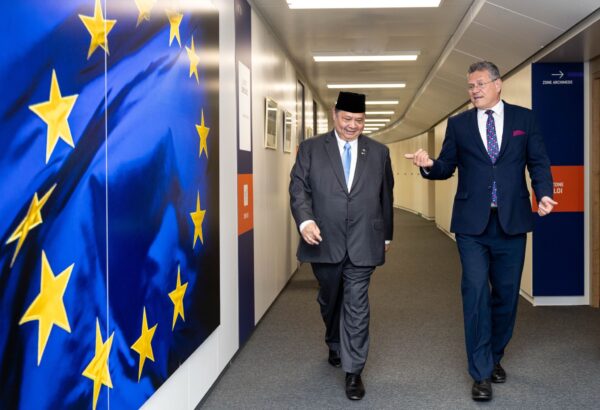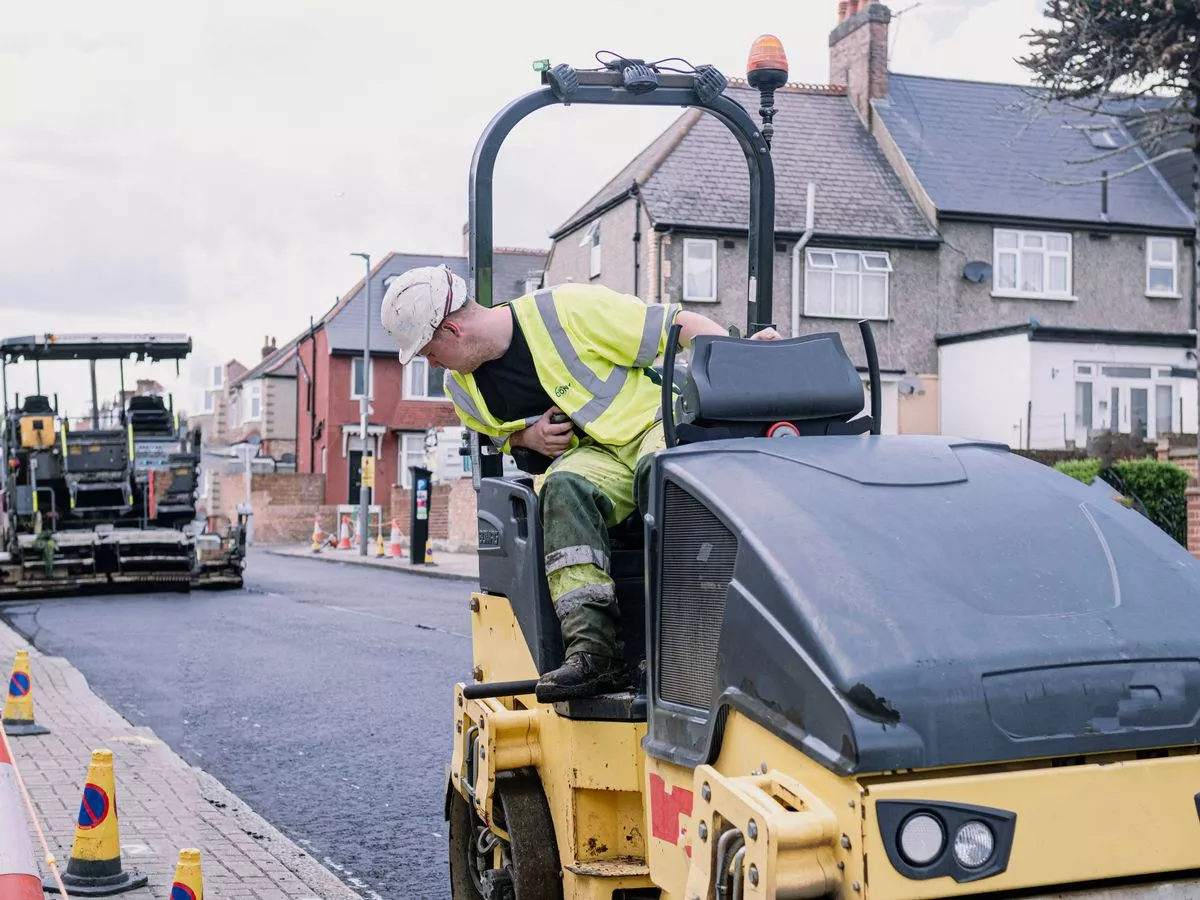Copyright thediplomat

On September 23, the European Union and Indonesia signed a Comprehensive Economic Partnership Agreement (CEPA) after 19 rounds of negotiations over nine years. The agreement is part of the EU’s drive to diversify trade and alliances and reduce its reliance on the United States following the imposition of President Donald Trump’s tariffs. The bloc also aims to strike deals with ASEAN nations Malaysia, Thailand, and the Philippines by 2027. The deal will remove 98 percent of tariffs in a bid to increase trade between the EU and Indonesia, which currently worth 27.3 billion euro ($31.7 billion). It will also provide “a stable supply of critical raw materials” for Europe’s clean energy transition, European Commission President Ursula Von Der Leyen has said. The CEPA is also a major foreign policy win for Indonesia’s President Prabowo Subianto, who has faced a number of problems since taking office last year, including mass protests over politicians’ perks and mass outbreaks of food poisoning of schoolchildren linked to his flagship free school meals program. Shared Values In a press conference in Brussels in July, Von Der Leyen and Prabowo stated that their ties were “grounded in shared values of democracy, human rights, and the rule of law.” But events unfolding in Indonesia tell a different story. A week earlier, Dr. Albert Barume, the U.N. special rapporteur on the rights of Indigenous peoples, paid an official visit to Indonesia’s Papua region. While in Papua, he described his sadness at the mistreatment of Indigenous Papuans who have been evicted from their ancestral forests by Indonesian security forces to make way for agricultural plantations. Relatively untouched compared to heavily deforested Borneo and Sumatra, Papua is now the epicenter of Prabowo’s military-backed Food Estates Program, which is bulldozing 2 million hectares of rainforest to set up plantations for sugar, rice and palm oil, with the stated aim of achieving food self-sufficiency. Human rights activists say that “Prabowo’s militaristic regime in West Papua is even worse than we feared,” Indonesian human rights lawyer Veronica Koman told The Diplomat, pointing to a recent “massacre” of 15 Indigenous Papuans on October 15. “There have been massive troop deployments into West Papua since Prabowo took charge and we’re seeing more airstrikes and more sophisticated equipment being used,” she added. West Papua was annexed in 1962 by Indonesia, igniting a conflict between the Indonesian state and a political movement that is fighting for independence. Some organizations estimate that as many as 500,000 have been killed in the conflict since 1962, while around 100,000 Papuans have been displaced since 2018 by conflict or resource extraction-related evictions. CEPA includes a duty-free quota for crude palm and palm kernel oil that is projected to increase imports to the EU by over 20 percent, which signals a significant retreat from the EU’s position when it was “critical of deforestation and land grabbing in Indonesia,” according to Andreas Harsono of Human Rights Watch. “It provides a bigger market in Europe without strict requirements for palm oil, woods, and minerals from Indonesia, and as with the Food Estate program, no Papuans were consulted.” West Papua is also home to the world’s largest copper mine, Grasberg, which is expected to supply the EU market with copper and gold under the CEPA. However, the mine also reportedly dumps 300,000 tons of toxic waste, containing mercury and cyanide, into surrounding rivers each day, undermining CEPA’s commitment “to ensure that mining operations do not have adverse effects on the environment.” Carles Puigdemont, a former MEP and president of Catalonia in exile, says that the EU’s indirect endorsement of Indonesian mining projects “could lead to an increase in violence, especially in the West Papua region.” He added, “It’s a shame for us as Europeans, because this was a good opportunity to influence President Prabowo's government policies to achieve political solutions for the West Papuan conflict.” In addition to its fierce clampdown on the Papuan separatist movement, the government has not hesitated to jail environmental defenders and others fighting for indigenous rights, according to the Indonesian NGO JATAM. Organizations such as Greenpeace Indonesia say that this could worsen under Prabowo, who has given the military a greater role in government. CEPA “incentivizes the occupation of West Papua by providing market access for the spoils of war and waives accountability for past war crimes and ongoing abuses,” Koman says. “It’s a slap in the face for West Papuans and bad news for human rights and the environment.” Watered Down Commitments Negotiations for an Indonesia-EU free trade agreement began in July 2016, but took nine years to conclude, partly due to Indonesian resistance to EU environmental frameworks that restricted the import of products, such as palm oil, connected to deforestation and human rights violations. While CEPA appears to maintain the EU’s position on human rights and the environment, by mandating Indonesia’s adherence to the Paris Agreement and requiring that both nations “respect, promote and consider their respective obligations on human rights, the right to health, the rights of indigenous peoples,” it also recognizes Indonesia’s right “to establish its own levels of domestic environmental and social protection,” giving the government wide latitude. This marks a concerning reversal. In 2019, the EU conducted an Sustainability Impact Assessment (SIA) to evaluate the impacts, both negative and positive, of the CEPA with Indonesia. Since then, Indonesia has passed laws weakening environmental protections, including the Omnibus Law of 2020, the revised penal code of 2022, and rushed amendments to the Mining Law in 2025. The SIA sets a clear benchmark that illustrates the shortfalls of the final CEPA text. With regard to human rights, the SIA noted that a free trade deal could have “negative impacts on the people in Indonesia occupied in sectors that are expected to see rapid expansion, especially where concerns already exist on human rights.” It also expresses concern about Indonesia’s “weak implementation of laws on indigenous peoples’ land rights,” stating the deal carries the “risk of increased human rights violations, as raising profits could potentially disincentivize” enforcement of indigenous people’s rights. The SIA recommended that CEPA include “specific references” to “indigenous peoples” and “the ILO Convention No. 169 on Indigenous and Tribal Peoples.” The final text of the agreement mentions neither of these things. The EU Commission’s spokesperson for trade, Olof Gill, defended the deal, saying that the 2014 EU-Indonesia Partnership and Cooperation Agreement (PCA) “establishes the respect for human rights as an essential underlying element. The legal and institutional link between the CEPA and the PCA ensures that the respect of human rights is an essential element of the trade deal.” But the PCA is not a legally binding enforcement mechanism. A breach of rights does not compel the EU to suspend trade preferences or enact penalties, but only allows them to do so, leaving implementation dependent on political will. Since the PCA’s implementation, over a decade of well documented human and environmental rights violations have occurred. But the EU has never activated article 44 of the PCA, allowing it to suspend cooperation or curtail trade preferences. “This is a disaster for Papuans,” says Benny Wenda, a Papuan living in exile in the United Kingdom. “They are authorizing ecocide and genocide in West Papua. The EU must stop this deal. They are giving Indonesia a mandate to deploy their troops, control our natural resources, and destroy our forests.” Where the SIA called for independent, verifiable systems to trace deforestation, CEPA now gives the Indonesian Sustainable Palm Oil (ISPO) scheme legitimacy, despite NGOs warning that it offers “less protection of High Conservation Value” forest and is governed by “looser environmental standards.” Critics agree the deal is likely to inflame the long-running conflict in Papua further. Koman, who regularly disseminates information on the state of conflict between Indonesian forces and Papuan resistance fighters, says that now “the resistance movement will escalate no matter what.” “It’s getting stronger and larger every day due to its popularity among Papuans, despite Indonesia’s brutal effort to crush them,” she says. “The difference is now the European public is directly implicated in this bloodshed.”



